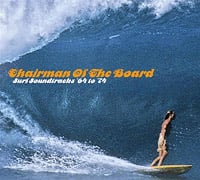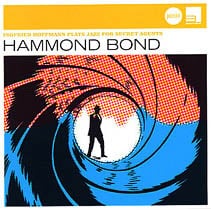NPR – Weekend Edition Sunday, July 29, 2007
Lyle Ritz has logged over 5,000 sessions on the bass as a studio musician. But for his latest project, he wanted to figure out a way to make music on a computer. So Ritz bought an Apple laptop and a software program called GarageBand, designed for making home recordings. Six months later, he completed work on a new solo album.
‘Hardly anybody knew how to operate GarageBand, how to deal with it,’ Ritz says. ‘So I had to fool with it a couple of months.’
On No Frills, however, Ritz entered the bass line into the computer using a synthesizer. That’s because the album features Lyle Ritz’s other musical passion: the jazz ukulele.
Ritz is known as the ‘father of jazz ukulele’ for merging the genre with the four-stringed instrument, and his credits on bass include multiple pop hit singles. However, it was in college, while he was working at a Los Angeles music store, when Ritz first picked up either instrument.
‘This was in the 50s, when Arthur Godfrey, the entertainer, who liked to play the [ukulele], popularized the instrument, and so many people just had to have ukes,’ Ritz says. ‘And one day I picked it up, somebody wanted to see this beautiful, nice, big tenor uke, and I picked it up and played a few chords on it, and I was gone.’
After a stint with a U.S. Army Band during the Korean War—in which Ritz played tuba—he dropped by the music store and played a few tunes on the ukulele for his former boss. Ritz didn’t know that jazz guitarist Barney Kessel, the West Coast representative for Verve Records, was present.
‘I just about fell through the floor,’ Ritz says. ‘I couldn’t believe that I had actually played before this man.’
Kessel offered Ritz a record deal, and in 1957—50 years ago—Ritz recorded an LP called How About Uke?, the first album for jazz ukulele.
How About Uke and its follow-up 50th State Jazz generated little interest, however, and Ritz soon abandoned the ukulele for the bass. It was at that point when Ritz joined the ‘Wrecking Crew,’ the legendary group of studio musicians who played on many of the pop hits which came out of the Los Angeles area from the mid 1960s to the early 80s. Later, Ritz also played on film scores.
While Lyle Ritz’s bass was heard by millions, his jazz records for Verve were being studied by a generation of musicians in Hawaii, home of the ukulele.
Roy Sakuma is Hawaii’s foremost teacher of the instrument. ‘All of a sudden here comes Lyle with all these fantastic chord harmonies that just took music to a whole new level on the ukulele,’ Sakuma says. Sakuma tracked Ritz down in 1984, inviting him to headline his annual ukulele festival in Hawaii. Ritz ended up moving to the islands for some time.
Ritz currently lives in Portland, Ore., where he continues to experiment with music and new recording technology. He says he’s always fooling with his ukulele—after all, he did teach himself to play the instrument.
‘I’m a firm believer and exponent of the art of noodling,’ Ritz says. ‘You don’t necessarily have to have a goal in mind, you don’t have to have a specific phrase or song that you’re working on, but you just fool with it and things happen. And I call the result the fruit of the noodle.’

